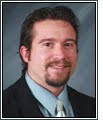
The typical estate plan has come to include - though not always - a will, living will, powers of attorney, trusts, guardianship designations, letter of intent, and beneficiary designations. Unfortunately, over half, or an estimated 54% of Americans, do not have a will. So as not to berate the work of estate planning professionals, many of those in this business, nevertheless, focus little at all on what are referred to as "emotional inheritances." Some, although they are very acute to the notion of legacy building, frame estate planning in terms of wealth transfer, tax avoidance, and divestment of assets. On the other hand, a number of estate planners review the client's emotional legacy and/or inheritance in making a comprehensive plan.
An "emotional inheritance" is essentially the passing on of values, traditions, cuture, and heritage to one's heirs. The will, in effect, can be a 'tapestry' of the family lineage and depiction of its ways signifying the testator's "passing of the torch." There is another dimension to making an emotional inheritance. Imagine when you are gone what people what will be saying about you at the funeral. What would you like to see them doing and saying. An "emotional inheritance" can set the tone. Think of this aspect as preservation of things that make family enjoyable and enduring, the best of nostalgia. Oftentimes, when family comes together after a death are they likely reminisce; yet, there is no telling what can be missed in the commiseration.
The preoccupation with the basic fundamentals of planning have to some extent overlooked "emotional inheritances." The making of a will with regard to "who gets what" and the fashion of burial, minimizing costs, taxes, administration and probate, determining the fate of tangibles, etc. may leave much to be lost that truly is 'priceless' and most important to one's legacy. For what else is a legacy if not those things that money cannot buy? Certainly, leaving behind wealth and assets to the people or organizations of our choice matters, without question. However, despite this necessity basic planning seems remiss of the "stuff" that makes us, in a large part, who we are: namely, our family and heritage. Invariably, family identity is very important to many and they wish for it to be recognized by the next generation.
Whether young or old, those with plenty or little, we face a point when our 'last testament' - our 'will' - is going to be considered. Some chose to do nothing, and thus their legacy remains understood by the actions taken by their descendants. But for those seeking to assemble a lasting legacy, an attorney can be a useful guide in the process. Prior to meeting, it is a good idea to pull out the old photo albums, scrap books, memorabilia, keepsakes, and give particular thought to all those things that make one's "emotional inheritance" and what needs to be stated. By doing so you may take some notes. These will significantly aid your attorney, and hopefully make for better, more meaningful, legacy building.
For answers to your questions you may contact: Frank A. Cseke Attorney at Law 2120 Timber Creek Drive, C-2 Fort Collins, CO 80528 Office: 970.219.9978 Fax: 970.631.8897 email: http://estateplanner.page.tl/Contact.htm
An "emotional inheritance" is essentially the passing on of values, traditions, cuture, and heritage to one's heirs. The will, in effect, can be a 'tapestry' of the family lineage and depiction of its ways signifying the testator's "passing of the torch." There is another dimension to making an emotional inheritance. Imagine when you are gone what people what will be saying about you at the funeral. What would you like to see them doing and saying. An "emotional inheritance" can set the tone. Think of this aspect as preservation of things that make family enjoyable and enduring, the best of nostalgia. Oftentimes, when family comes together after a death are they likely reminisce; yet, there is no telling what can be missed in the commiseration.
The preoccupation with the basic fundamentals of planning have to some extent overlooked "emotional inheritances." The making of a will with regard to "who gets what" and the fashion of burial, minimizing costs, taxes, administration and probate, determining the fate of tangibles, etc. may leave much to be lost that truly is 'priceless' and most important to one's legacy. For what else is a legacy if not those things that money cannot buy? Certainly, leaving behind wealth and assets to the people or organizations of our choice matters, without question. However, despite this necessity basic planning seems remiss of the "stuff" that makes us, in a large part, who we are: namely, our family and heritage. Invariably, family identity is very important to many and they wish for it to be recognized by the next generation.
Whether young or old, those with plenty or little, we face a point when our 'last testament' - our 'will' - is going to be considered. Some chose to do nothing, and thus their legacy remains understood by the actions taken by their descendants. But for those seeking to assemble a lasting legacy, an attorney can be a useful guide in the process. Prior to meeting, it is a good idea to pull out the old photo albums, scrap books, memorabilia, keepsakes, and give particular thought to all those things that make one's "emotional inheritance" and what needs to be stated. By doing so you may take some notes. These will significantly aid your attorney, and hopefully make for better, more meaningful, legacy building.
For answers to your questions you may contact: Frank A. Cseke Attorney at Law 2120 Timber Creek Drive, C-2 Fort Collins, CO 80528 Office: 970.219.9978 Fax: 970.631.8897 email: http://estateplanner.page.tl/Contact.htm




